Underst ry The
A deeper look into the Rainforest Alliance
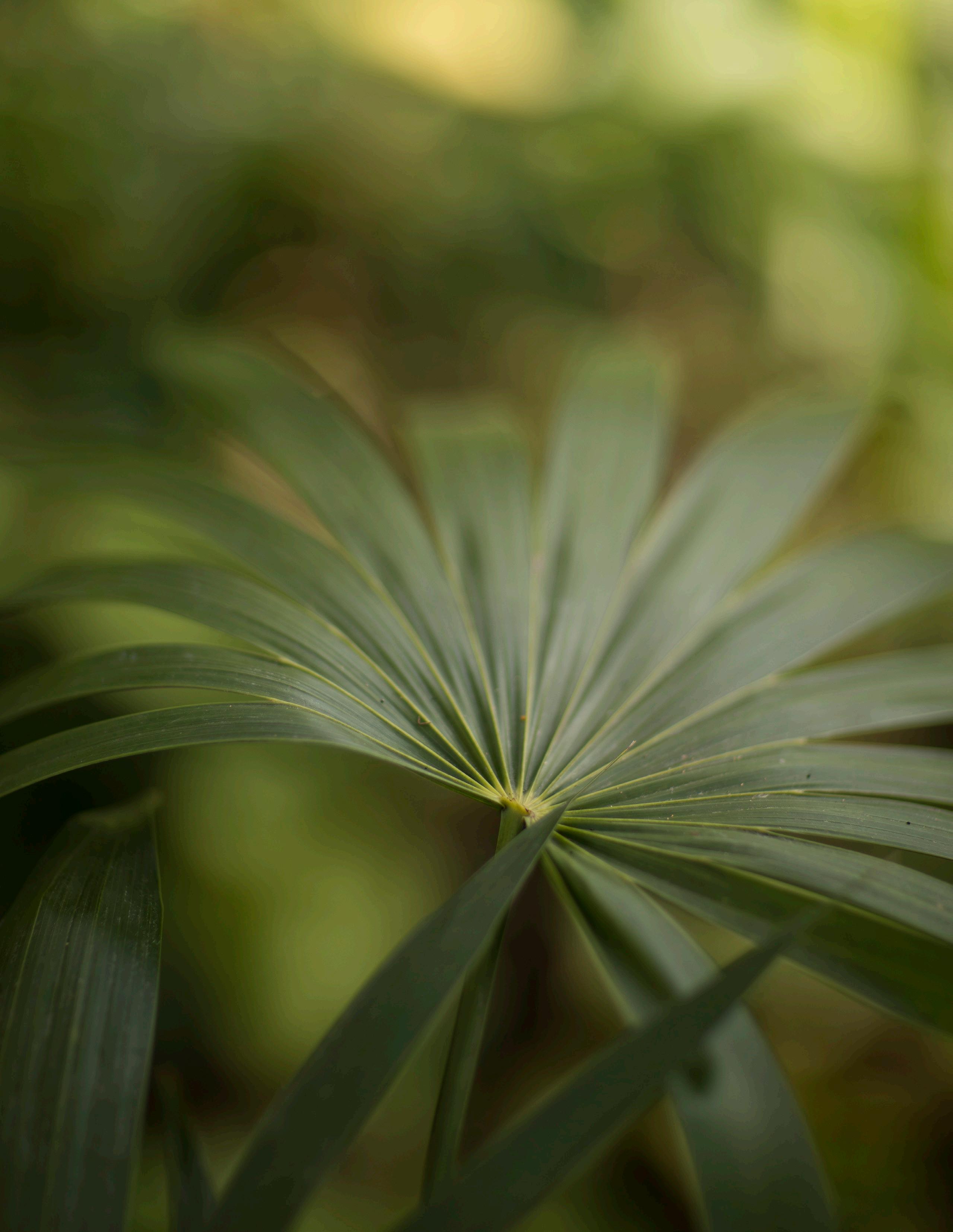
ISSUE 1
FALL 2020
The Rainforest Alliance is an international non-profit organization creating a more sustainable world by using social and market forces to protect nature and improve the lives of farmers and forest communities.
2 million +
70 +
countries around the world with active projects and/or certified farms
100 +
farmers in our certification program active projects directly benefiting farmers, forest communities, and nature
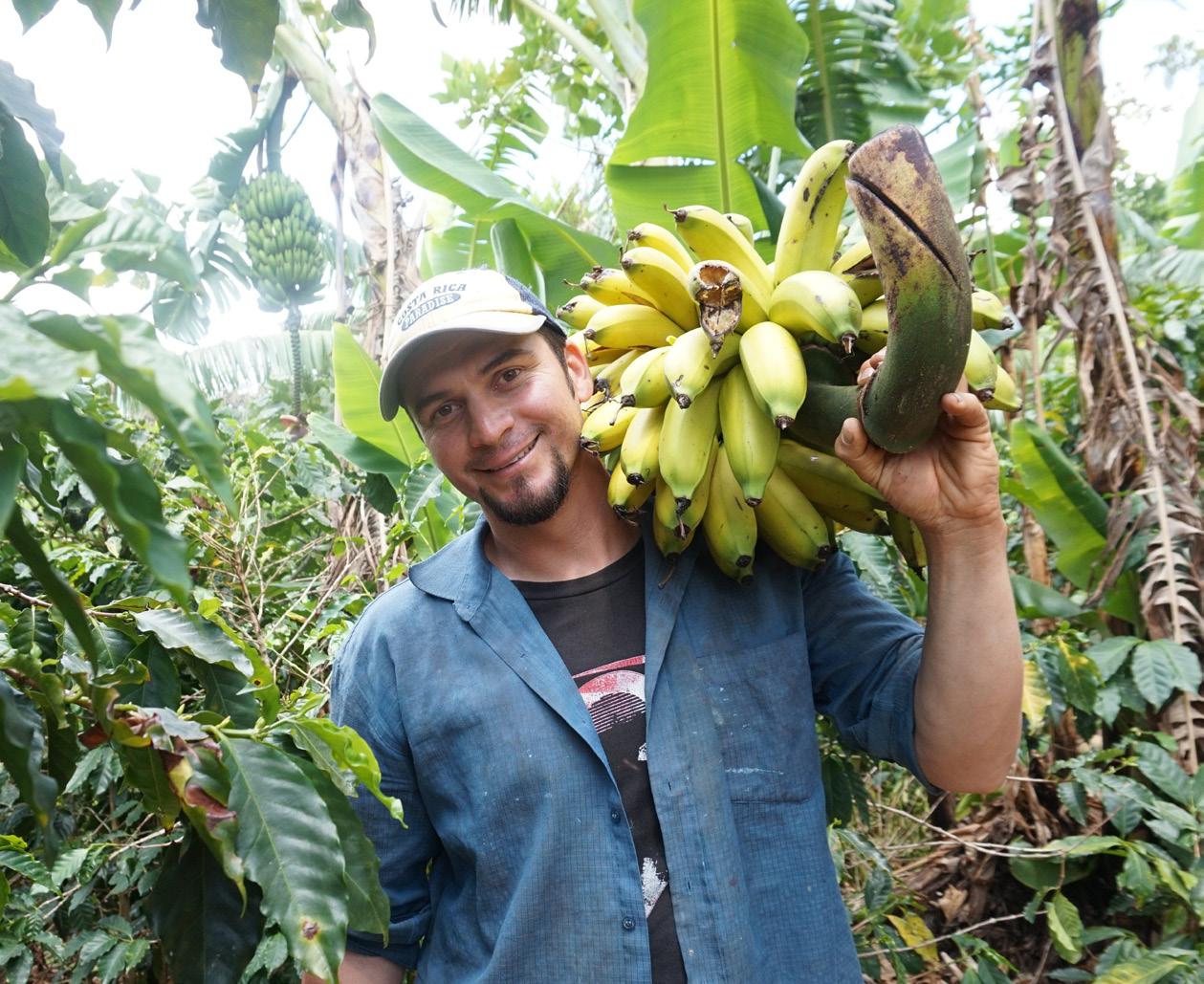
5 million +
hectares of global farmland certified against our sustainability standards
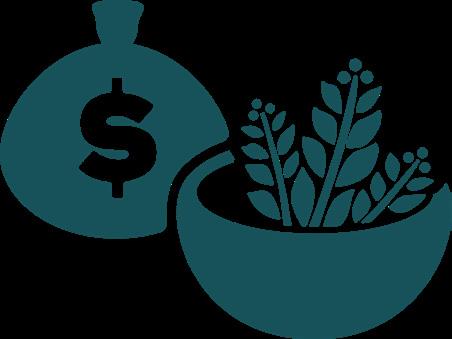
5,000 +
companies working with us to source certified ingredients and improve their business practices
Our multifaceted approach to shaping a more sustainable world:
CERTIFICATION
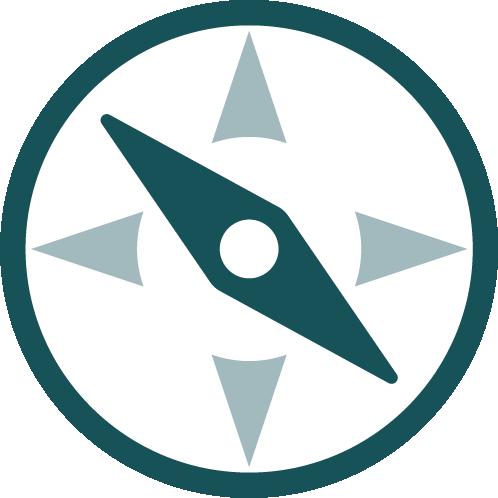
We certify products that are grown in accordance with our standards, which support environmental, social, and economic sustainability.
GUIDING COMPANIES
We advise companies on how to improve sustainability within their supply chains and source responsibly.
LANDSCAPES & COMMUNITIES
We support farmers and forest communities to adopt regenerative farming practices that improve livelihoods.
ADVOCACY
We advocate for policies that create an enabling environment for sustainability improvements.
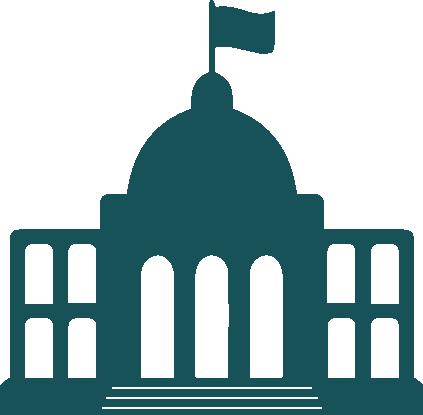 Who is the Rainforest Alliance?
Who is the Rainforest Alliance?
Welcome to The Understory
The Rainforest Alliance’s newsletter for the passionate supporters who share our mission to create a better future for people and nature.
un·der·sto·ry [noun]: A layer of vegetation beneath the main canopy of a forest
IN THIS EDITION
Read about our work to stop deforestation and build thriving livelihoods in Latin America.
A LETTER FROM OUR STAFF
Mark Moroge, Director of Latin America
OUR ALLIANCE IN ACTION Stories from Peru and Ecuador
FEATURE STORY
Responding to the Crises of Our TIme
MEET OUR ALLIANCE MEMBERS
Marilú Hernández de Bosoms and Bonnie Wright
CONTACT US
FALL 2020 ISSUE 1
Our FOrests are Burning. What is the sOlutiOn?
BY MARK MOROGE | LATIN AMERICA DIRECTOR
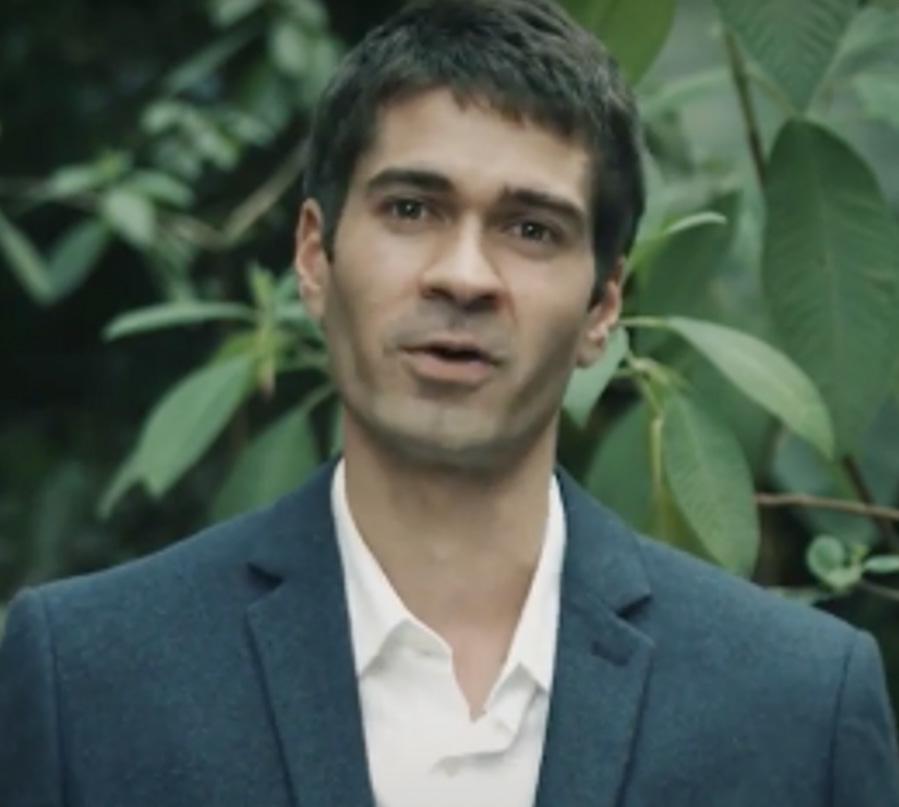
Scanning the news in September was terrifying. It seemed like the entire world was ablaze: Brazil, Colorado, Oregon, Washington, California—all burning. California alone lost more than four million acres in what has turned out to be the state’s worst fire season on record. These fires upended thousands of lives—tragically taking some of them— and destroyed land, homes, and livelihoods.
Climate change certainly plays a role in California’s disaster, but to an extent fire has always been part of the ecosystem here: The western US has a largely arid, Mediterranean climate.
But one place where fires shouldn’t be raging?
The Amazon rainforest. It receives well north of 100 inches of rainfall a year. Yet between January and September of this year, 6,231,100 hectares of Brazilian Amazon burned—more than during the same period of 2019, which was widely regarded as catastrophic. Some of the world’s most biologically rich forests— literally teeming with unique plants and animals— went up in smoke.
Fires of this scale in the world’s largest tropical rainforest should signal to all of us that something is very wrong— that in fact, a lot of things are terribly wrong.
Brazil’s national government encourages deforestation and defunds the agencies that protect forests and the Indigenous people who steward them. Fire often follows deforestation. Irresponsible big companies tacitly enable fires by purchasing soy, beef, and other staples that were produced on land where rainforest was cleared. Frontline communities, desperate to beat back fire, struggle to access the resources, equipment, and know-how they need to protect their forests.
What’s the Amazon end game if we don’t change? Scientists say we are approaching an ecosystem tipping point, after which the Amazon forests will gradually convert to grasslands. Take away the Amazon rainforest and what do you get? A hotter world. More fires in Brazil. More fires in California, Colorado, and Australia. More fires everywhere.
A MESSAGE FROM OUR STAFF
“A healthy planet requires a healthy Amazon”
4 | THE UNDERSTORY
MARK MOROGE | Latin America Director, Rainforest Alliance
A healthy planet requires a healthy Amazon—one free of widespread, manmade fires. Working in alliance with partners in Brazil and around the world, we are:
• Advocating for stronger protection of forests and preventing the illegal land-grabs that cause so many fires in the Brazilian Amazon
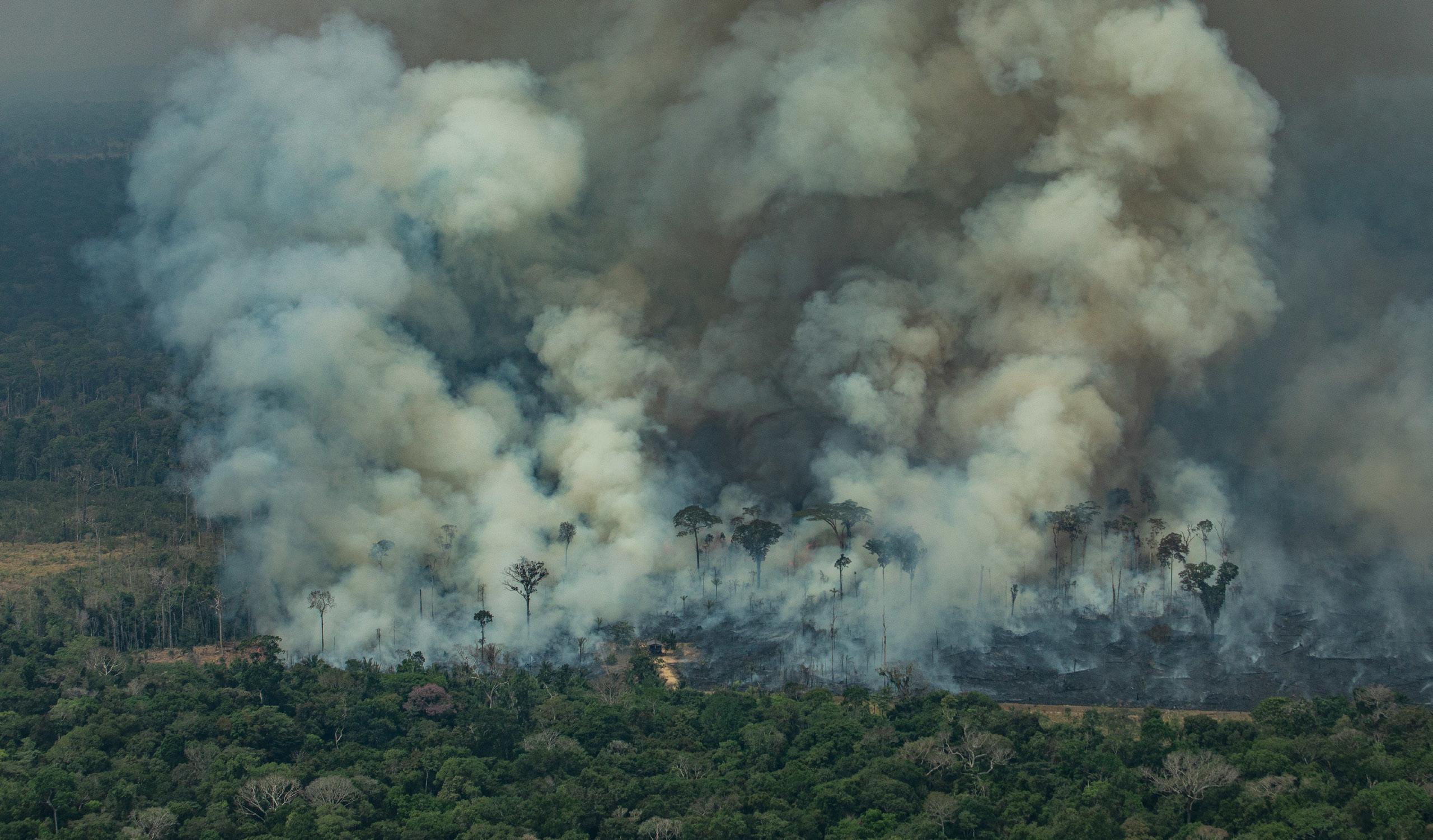
• Facilitating the gathering and sharing of realtime information on fires and deforestation in Indigenous lands, as well as rapid-response measures to address threats with fire brigades and local authorities
• Building Indigenous communities’ capacity to combat forest fires and to protect their forests by managing them sustainably
These solutions work. But to rise to the scale of today’s challenge, more support, more partnerships, more commitment is needed. The last two years have shown us just how interconnected we all are, with megafires in one corner of the world helping to set conditions for
megafires in another. September’s images of a fiery-orange, smoke-choked sky over San Francisco, USA, are nearly indistinguishable from images of Sao Paolo, Brazil’s skies last year.
Brazil, California—it doesn’t matter where you are. We’re all in this together. Now let’s move forward, together, toward a better future—one with a healthier Amazon and a healthier planet.
We’ll continue this conversation with Mark on November 19th at 12PM EST.
Join us to delve deeper into the complexities of this global crisis and learn more about how we can protect threatened forests across Latin America.
Click here to register.
FIRES IN THE BRAZILIAN AMAZON
Photo: Victor Moriyama
ISSUE 1 | FALL 2020 | 5
impact acrOss latin america
The Rainforest Alliance works in Latin America’s most biodiverse landscapes, partnering with rural communities to transform local economies in ways that safeguard nature and address climate change.
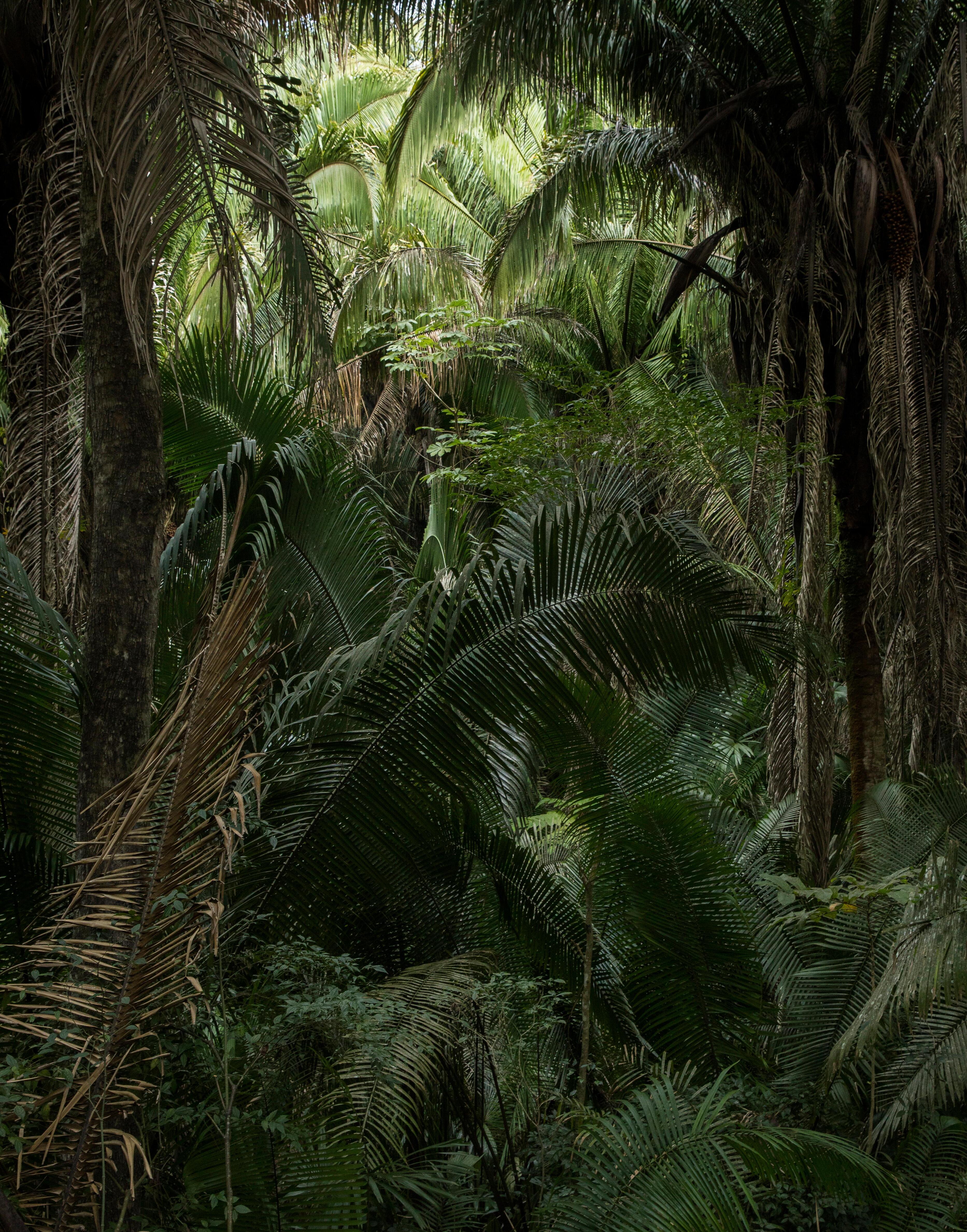
Our approach has boosted the incomes of hundreds of thousands of families across Brazil, Colombia, Honduras, Guatemala, Mexico, and Peru—all while protecting the land these families depend upon for their livelihoods. Leading companies across the coffee, forestry, cocoa, fruit, and palm oil sectors have invested in this proven model.
Whether we are working with sustainable forest businesses in Guatemala or Indigenous coffee farms in Peru, we always center the voices, values, and expertise of local communities in decision-making—with a special focus on women and youth—because that’s the most effective way to create a better future for nature and people.
6 | THE UNDERSTORY OUR ALLIANCE IN ACTION
FOREST IN MEXICO’S YUCATAN PENINSULA
Photo: Michael Toolan
Our Priority Sectors
forest products
banana
coffee
palm oil
cocoa
Rainforest Alliance offices
34
years working in Latin America
120 + 11%
staff members in Latin America
of Latin American staff are Indigenous
Focus areas for the Rainforest Alliance in Latin America:
• health and safety
• reforestation
• climate adaptation
• workers’ rights
• land rights
• gender equality
• climate-smart agriculture
• youth education
MEXICO PERU
ECUADOR
NICARAGUA
ISSUE 1 | FALL 2020 | 7
COLOMBIA BRAZIL GUATEMALA HONDURAS
climate-smart agriculture
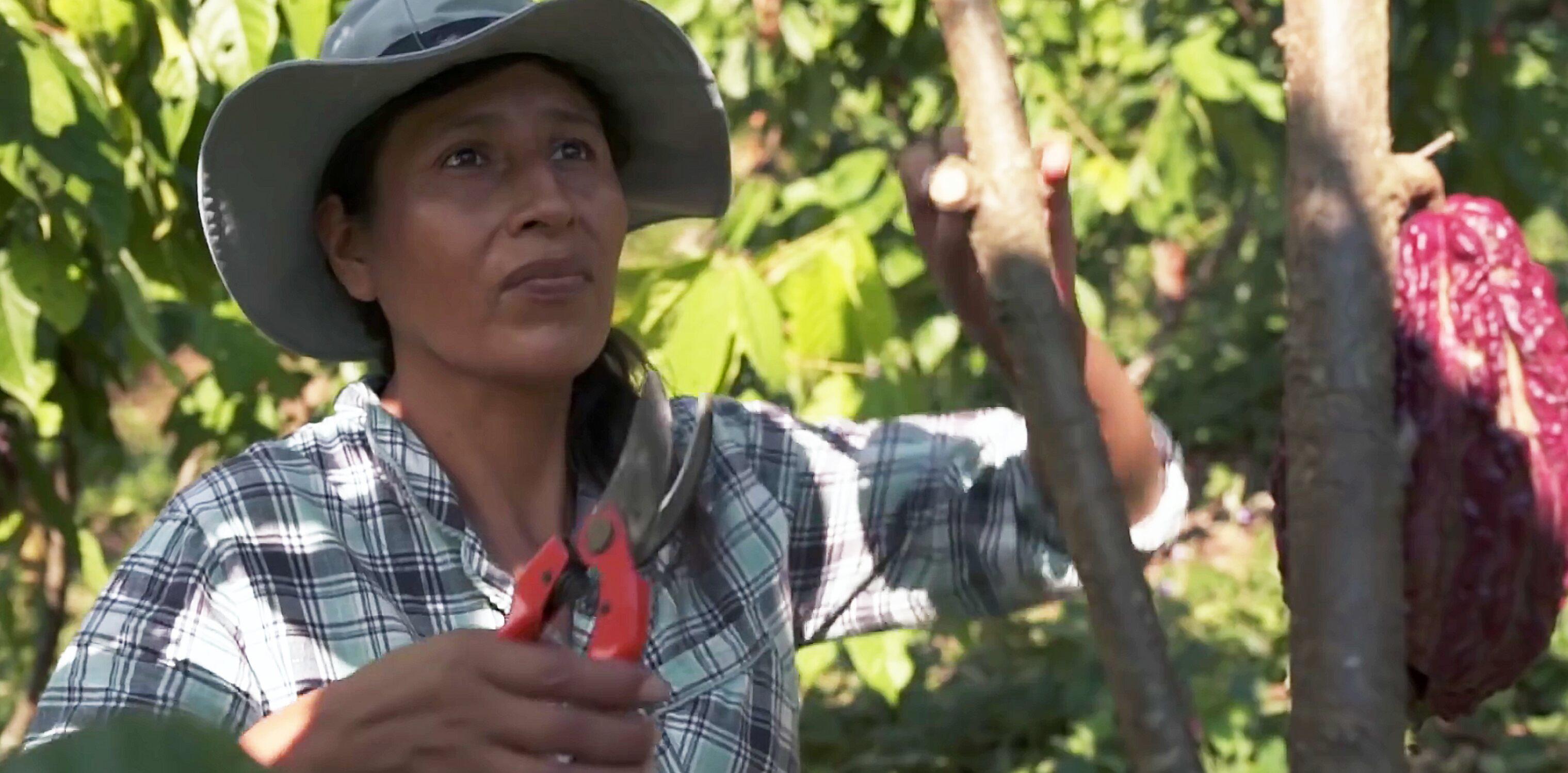
As the capital of the once-mighty Inca empire, the Cusco region in southeastern Peru functioned as an important agricultural hub. Centuries later, smallholder farmers still depend on the land for their livelihoods. However, as coffee and cocoa farmer Amelia Quispe Macarco saw when she first arrived to Cusco at age 17, slash-and-burn agriculture— intentionally setting forests on fire to clear the land— had destroyed many forests. Now, Macarco and her coffee community are working with the Rainforest Alliance to find more sustainable and climateresilient methods to grow crops, all while rebuilding and reforesting the degraded land.
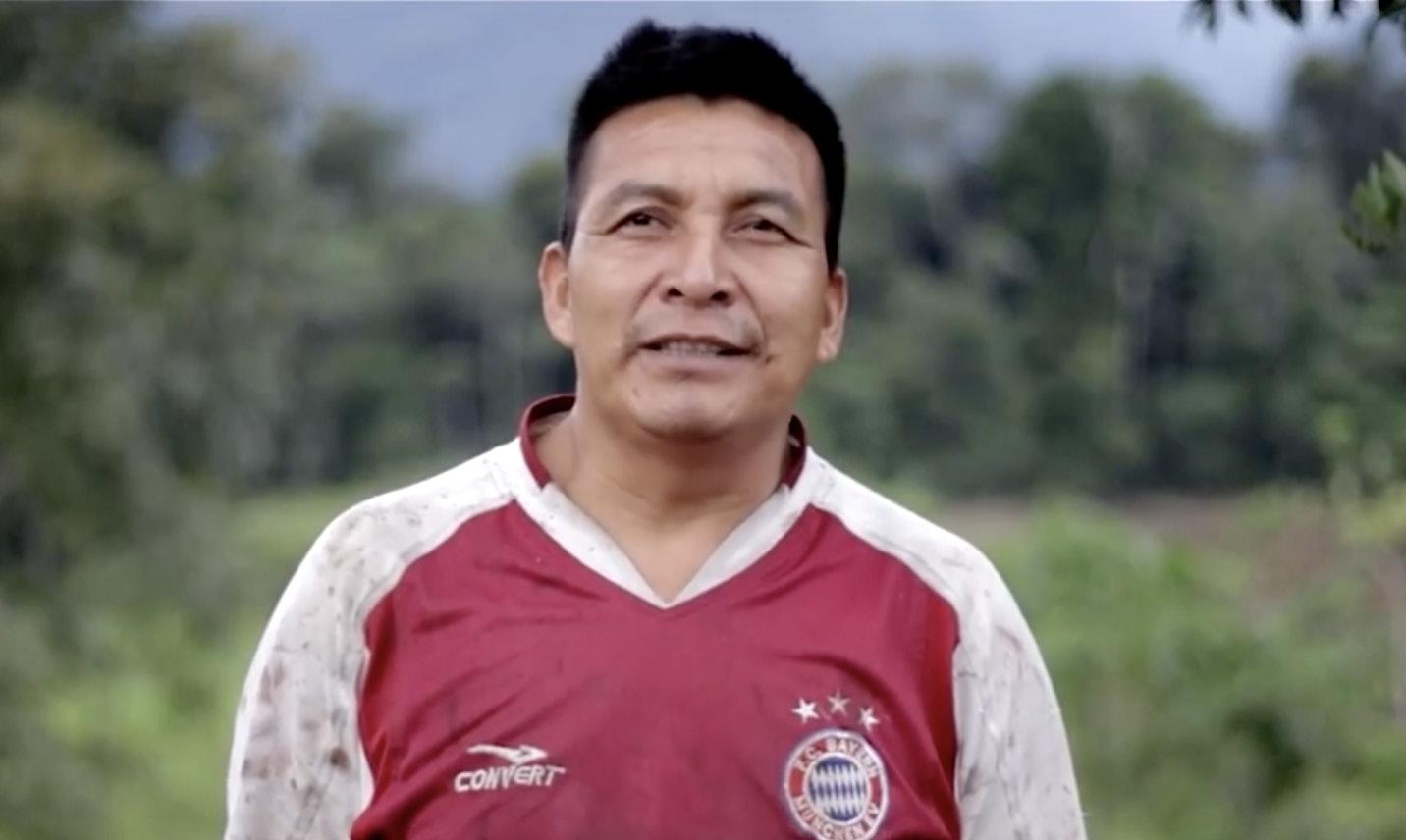
OUR ALLIANCE IN ACTION
“The Rainforest Alliance is motivating us, and incentivizing us, so we don’t lose our forest.”
AMELIA QUISPE MACARCO | Peruvian coffee & cocoa farmer
8 | THE UNDERSTORY
Click here to see a video from leader of the Yurilamas native community, Eligio Cachique Amasifuen
prOmOting gender equality
Starting the sustainability journey, from understanding the certification process to connecting with markets, can appear daunting for smallholders in isolated areas.
That’s where our regional team members, like Patricia Quijandría Díaz, come in. As the country lead for Peru and Ecuador, Quijandría helps set measurable certification goals for farmers and identifies the need for trainings or hands-on workshops based on location or crop. By regularly meeting face-to-face with farmers, she also sees firsthand the importance of including women at every step of the journey.
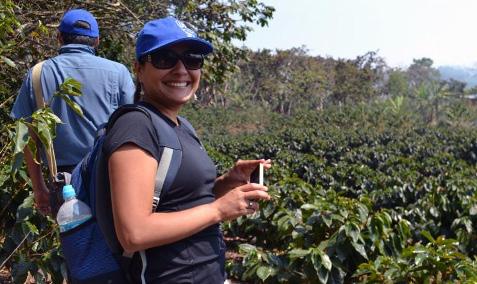
“I think sometimes the role of women is not clearly seen, but women are key to economic growth and poverty reduction because they are so involved in investing money in the farm and family.”
ISSUE 1 | FALL 2020 | 9
PATRICIA QUIJANDRÍA DÍAZ Peru Country Director
respOnding tO the crises OF Our time
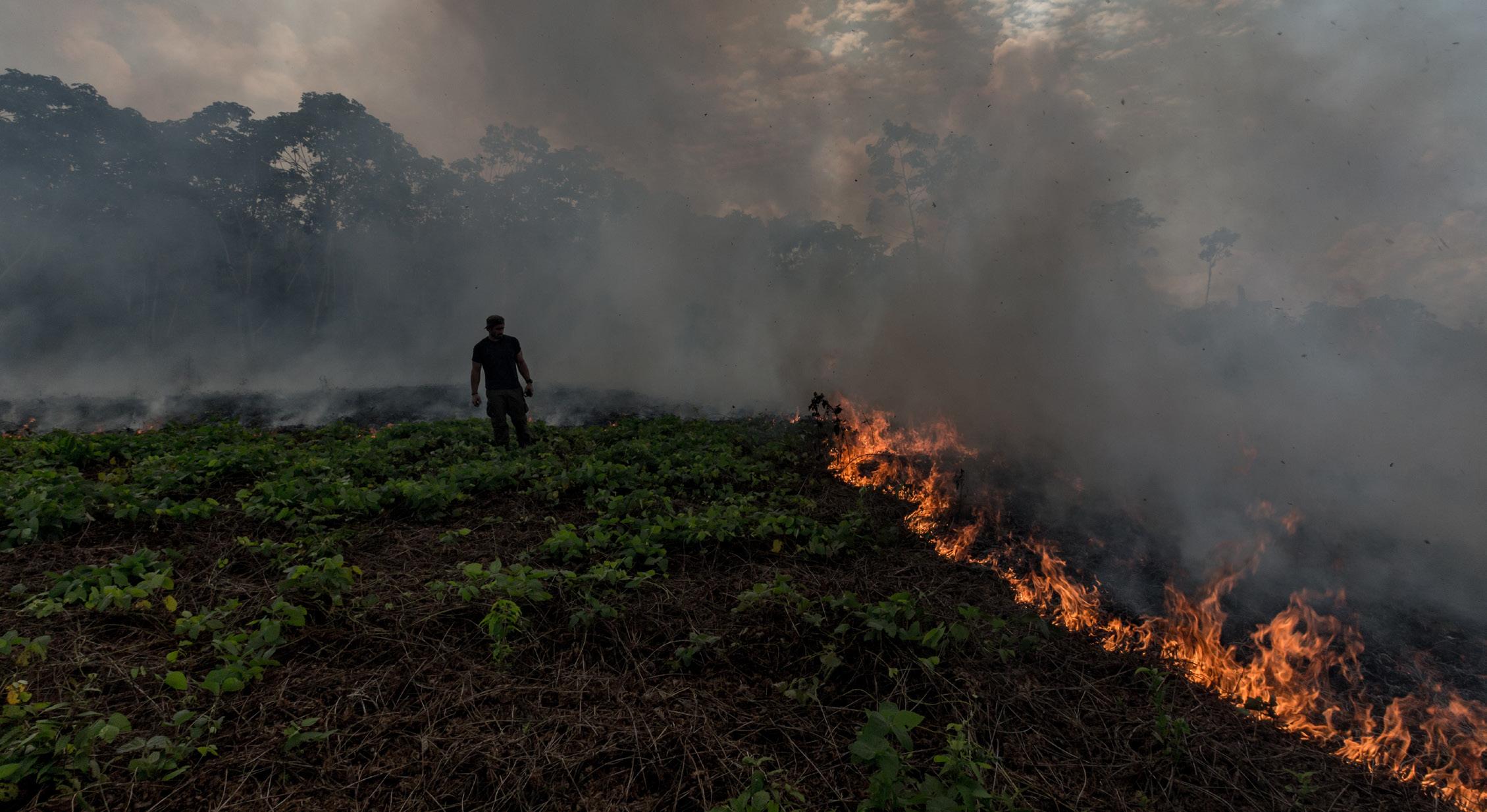
They’re all connected. So are their solutions.
The year 2020 has forced each and every one of us to reckon with the consequences of reckless environmental destruction. We all have been touched in some way by the coronavirus pandemic, a deforestation-related crisis that scientists have been warning about for decades. Many more have faced climate disasters that have now become annual events: increasingly frequent and intense hurricanes and huge wildfires in the American West that imprisoned people inside their homes just months after shelter-in-place orders had lifted.
Although the events of this year have certainly been shocking, they did not come as a surprise to those who work at the intersection of sustainable development and environmental conservation. Centuries of unchecked encroachment into natural frontiers—fueled by humans’ voracious demand for fossil fuels, timber, and land for development—have increased our exposure to zoonotic diseases as well as more frequent climate-related disasters.
It’s virtually impossible to find the silver lining in so much tragedy. However, a growing understanding
FEATURE STORY
10 | THE UNDERSTORY
FIRES IN THE PERUVIAN AMAZON
Photo: Mohsin Kazmi
of the critical importance of healthy forests has opened a door of opportunity for organizations like ours to intensify and scale up our work to advance planetary health.
As elected leaders, public health experts, businesses, and educators scrambled to reconfigure society, Rainforest Alliance staff around the world mobilized a vigorous response to the intertwined crises of COVID and climate. In March, we launched an emergency crowdfunding effort on behalf of our partner communities, many of which faced extraordinary pandemic-related difficulties on top of ongoing climate challenges. We distributed 18 micro-grants to farming and forest cooperatives in 12 countries to assist them with PPE purchases, food banks for farmworkers at risk of nutritional deficiency, the acceleration of crop diversification (for both economic and climate resilience), and educational initiatives to reduce the risk of child labor in the coming year.
Although we are not a crisis-response organization, the speed and success of our mobilization reflect the strength of the alliance we have built over the past 34 years. Deep and sustained collaboration with farming cooperatives, forest communities, government agencies, donors, and companies big and small is the foundation of our achievements— which are collective victories driven by our shared vision of planetary health. What binds the wildly diverse members of our alliance together is our focus on concrete solutions to protect natural capital while sustaining thriving rural communities. As zoologist Dr. Mary Pearl, director of International Biodiversity Network, said in a webinar we hosted in April: “We need to live in ecosystems that are healthy, because that is the source of all prosperity and health.”
Our alliance powered the remarkable results of our collaboration with local communities over the
course of the last 20+ years in the Maya Biosphere Reserve of Guatemala: a near-zero deforestation rate, net-forest gain in some areas, and $56 million in annual revenues generated by communityowned businesses (The Yale School of Environmental Studies hails this regenerative economic model as “a shining beacon of conservation.”). Our alliance also contributed to the development and launch of our 2020 agricultural certification program, which includes climate-smart methods that reduce deforestation and sequester more carbon in the soil; data-informed auditing to incentivize continuous improvement; and requirements designed to distribute responsibility for sustainable production more evenly across the supply chain.
These are just a few snapshots of the extraordinary work we have carried out in the midst of the pandemic, as we continue our long-term work to advance proven solutions for planetary health and community resilience. Despite the enormous challenges we faced this year, we have been encouraged by the unwavering commitment of our partners around the world to work together to shape a better future.
Our COVID-19 Response:
This year, the Rainforest Alliance has dispersed a total of $180,000 through small grants to groups in more than 12 different countries across Africa, Asia, and Latin America. These grants support access to healthcare, food security, and business support to cope with the ongoing COVID-19 pandemic.
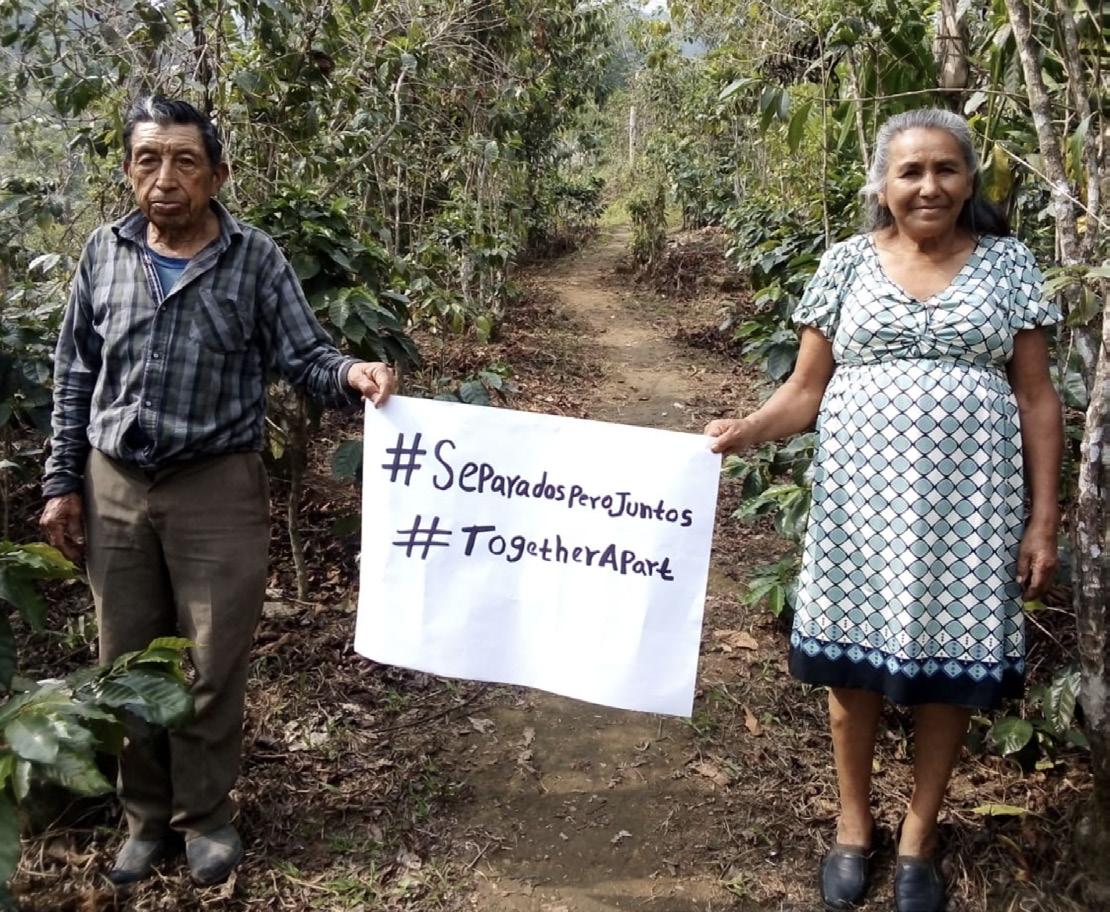
ISSUE 1 | FALL 2020 | 11
MEET OUR ALLIANCE MEMBERS
marilú hernández de BOsOms
“I support the Rainforest Alliance, not only for the organization’s dedication to the health of the planet, but for their commitment to the well-being of smallholder farmers and their families.
For me, this is central: When farmers are earning fair wages, they will stop looking for other ways to support their families, such as through illegal logging and child labor. And ultimately, we will have healthier food and more productive land.”
MARILÚ HERNÁNDEZ DE BOSOMS | Rainforest Alliance Board
Marilú Hernández de Bosoms is a Rainforest Alliance board member, born and raised in Mexico. Passionate about ecotourism, she loves traveling (sustainably!) and hiking the topical forests of Mexico.
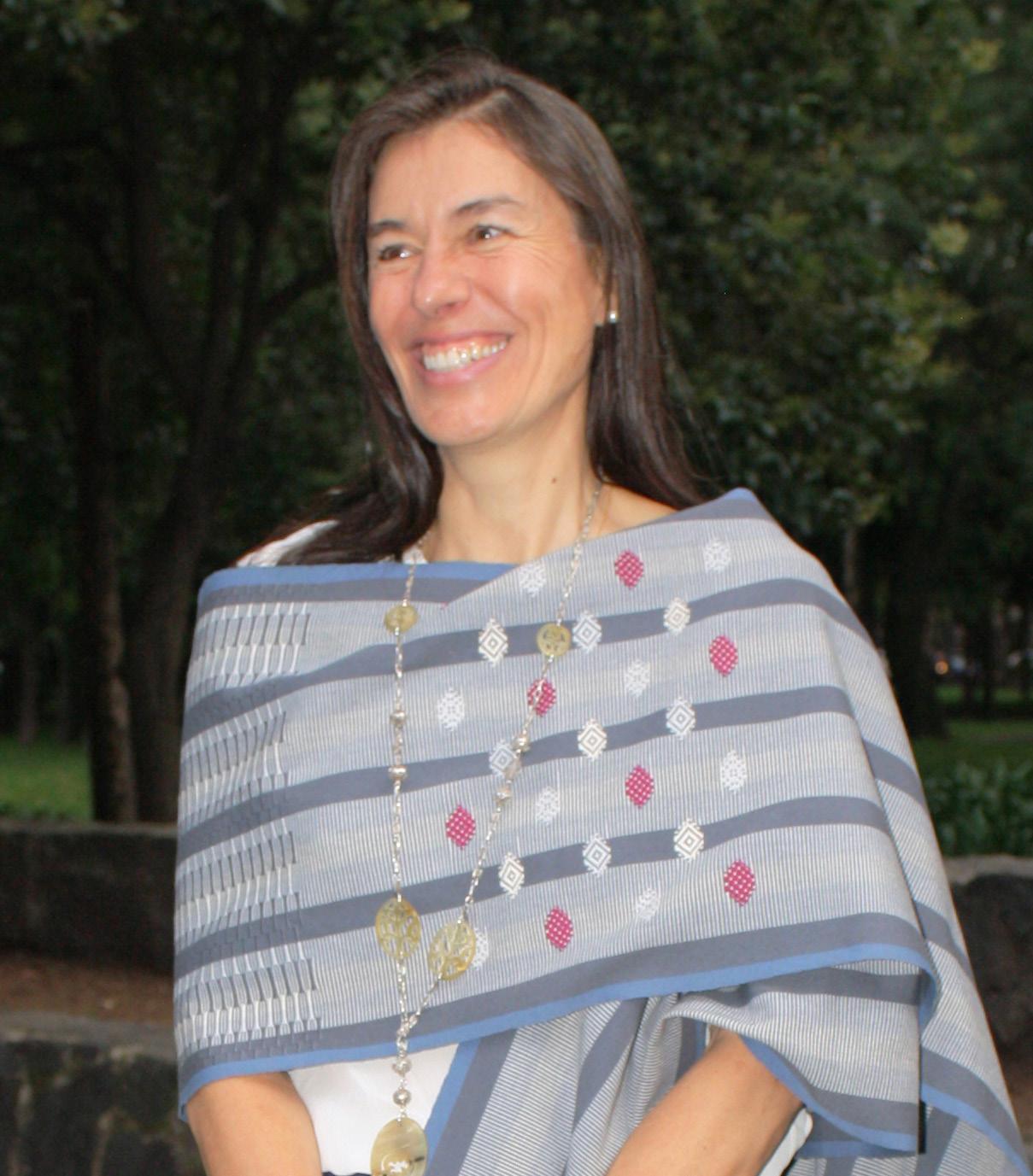
She is the founder of Fundación Haciendas Mundo Maya, a nonprofit organization that advances regional development in Mexico’s Yucatán Peninsula.

12 | THE UNDERSTORY
BOnnie Wright
The Rainforest Alliance’s newest ambassador, actordirector Bonnie Wright, traveled to Guatemala’s Maya Biosphere Reserve in February to see the incredible success that our partners have achieved with our support: maintaining a nearzero deforestation rate for almost 20 years.
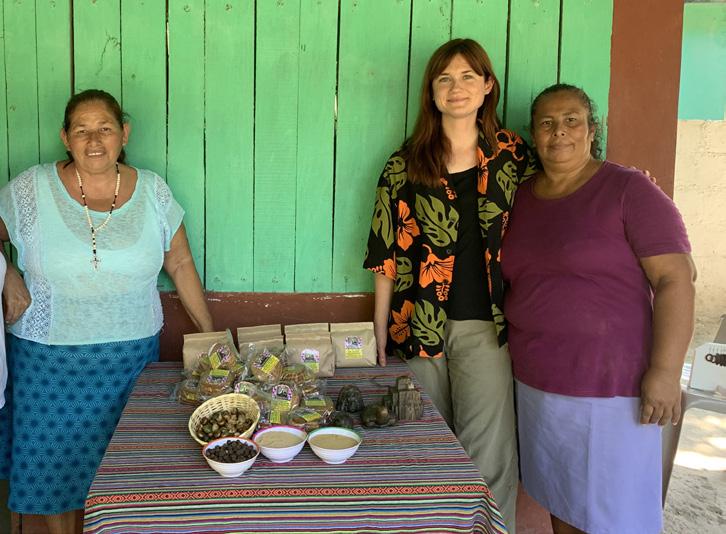
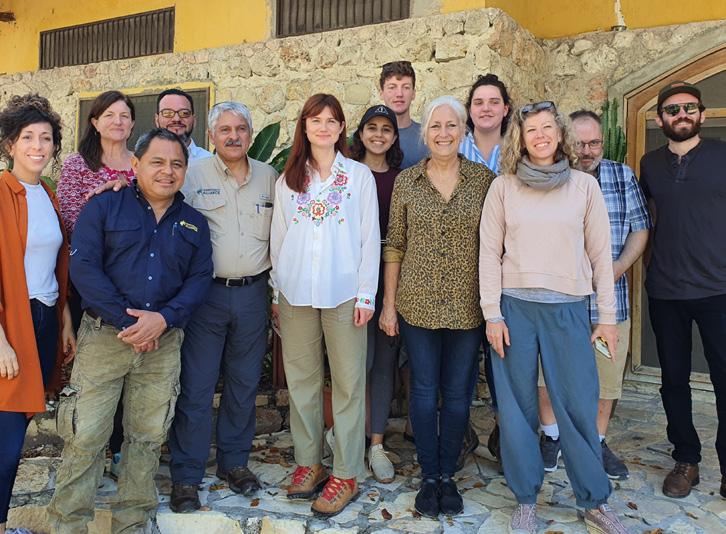
These community-managed concessions not only have twelve times less deforestation than other parts of the reserve, they also create thousands of jobs and have benefited almost 50,000 people over the last seven years.
Bonnie shared her journey on social media with more than 3 million combined followers, highlighting why it’s so critical to renew the concessions’ land leases for another 25 years and why community and land rights are key to conserving the precious rainforests of the Maya Biosphere Reserve.
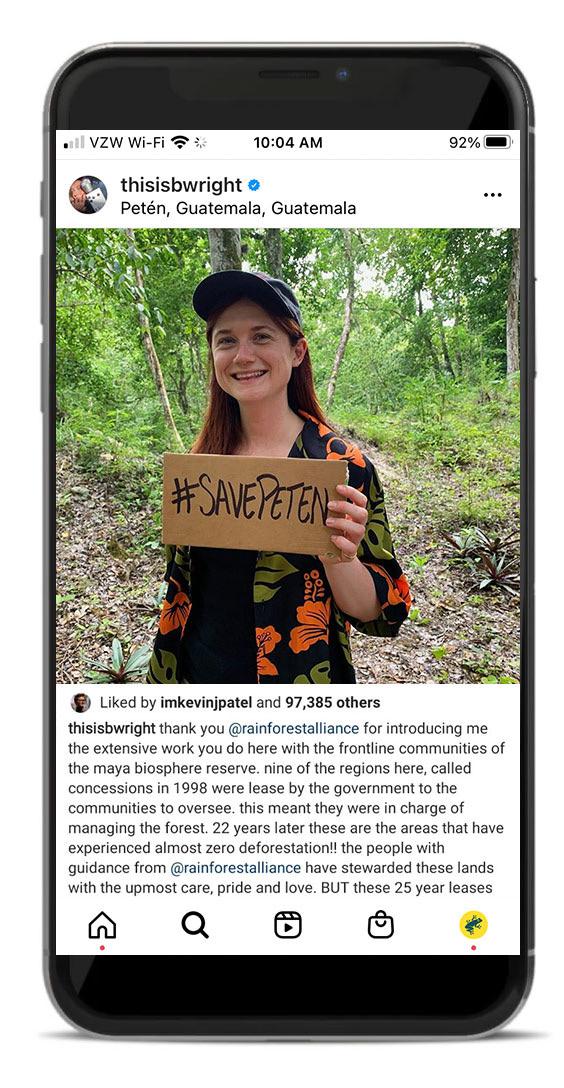
ISSUE 1 | FALL 2020 | 13
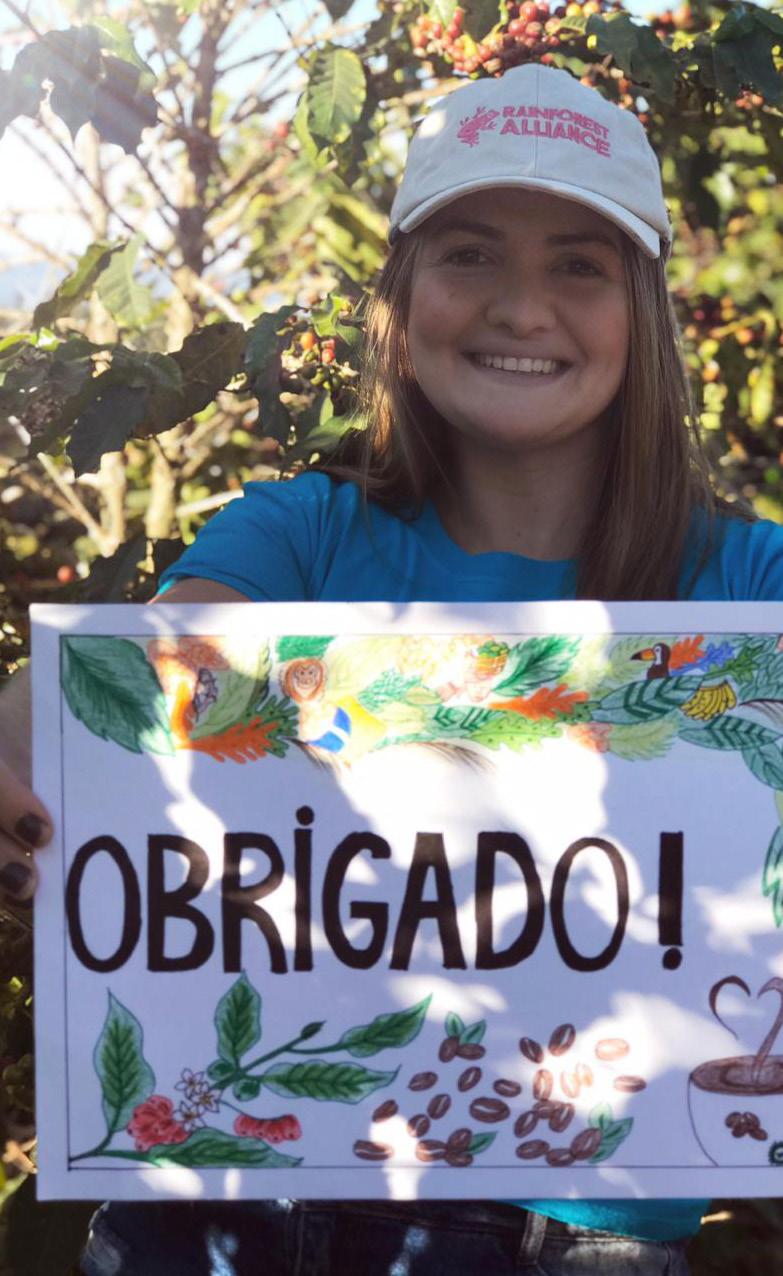
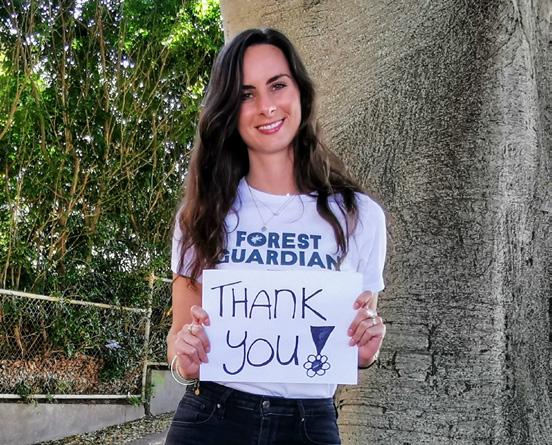
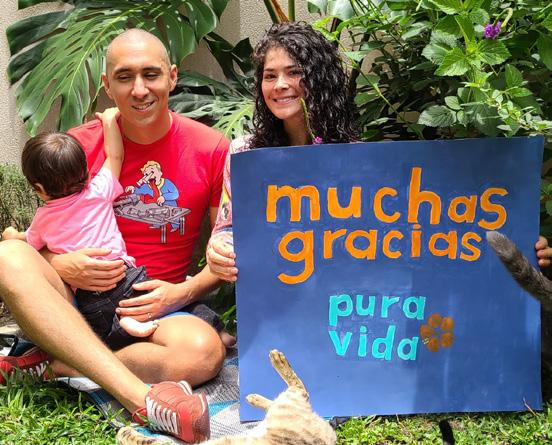
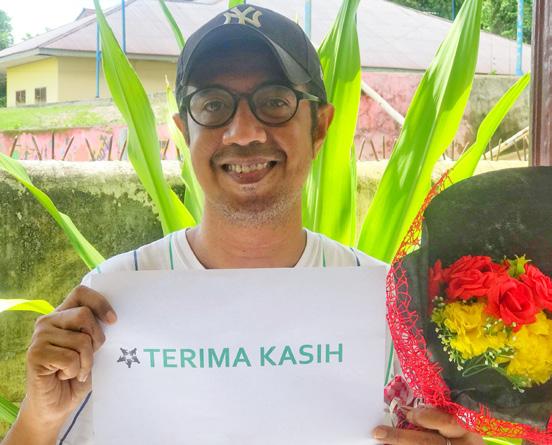
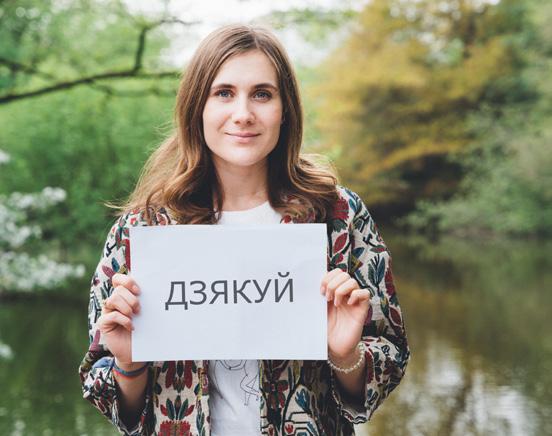
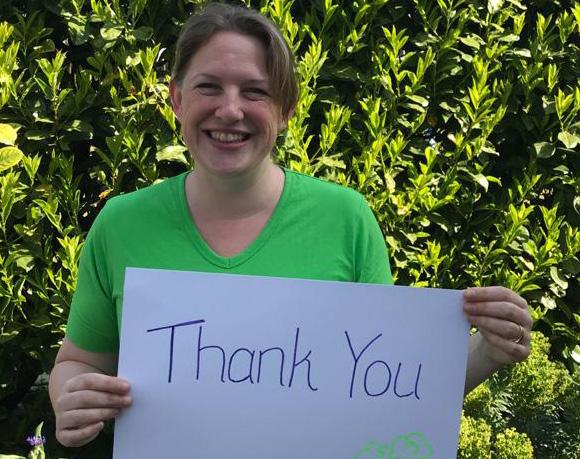
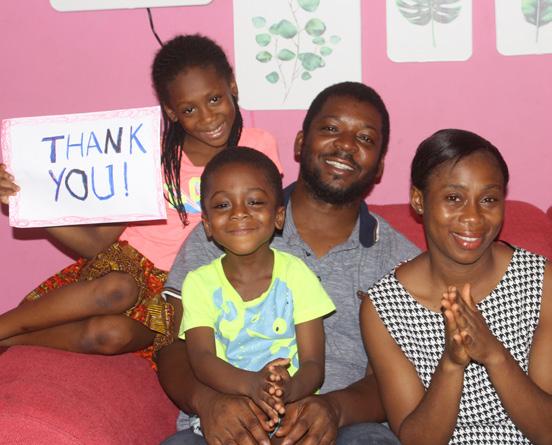
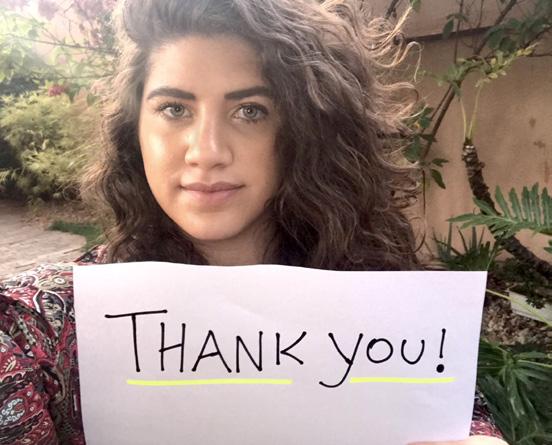
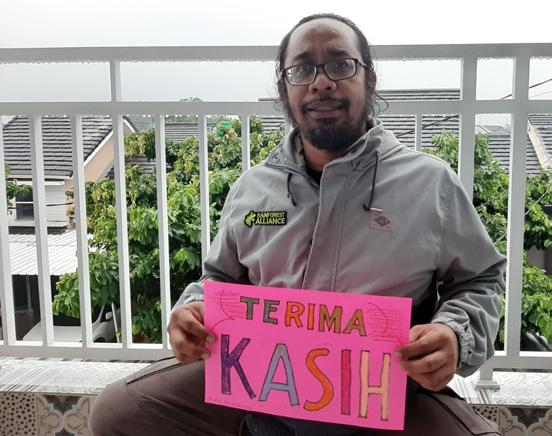

We’d love to hear from you! Please reach out directly to Gabriela at gabrielasanchez@ra.org FOLLOW US: stay in t O uch T HANK YOU for being a part of our alliance.
Underst ry The
YOUR SUPPORT MAKES A HUGE IMPACT for farming and forest communities across the globe.




 Who is the Rainforest Alliance?
Who is the Rainforest Alliance?























